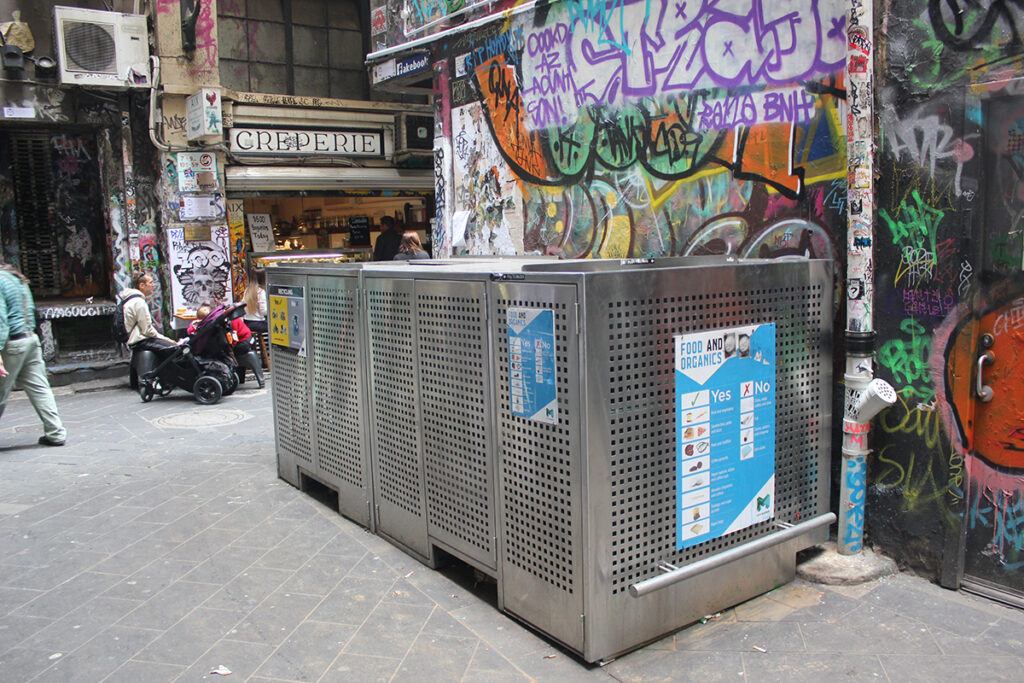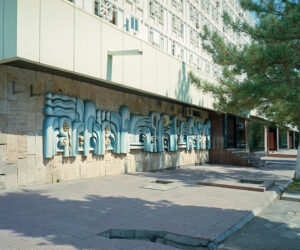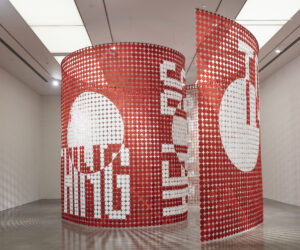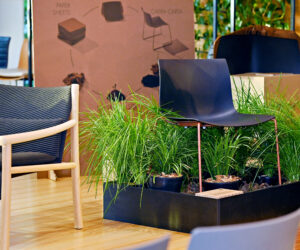Degraves Street Recycling
One of Melbourne’s most iconic laneways is now one of its greenest, with an innovative recycling project breathing new life into the Degraves Street precinct.
Operating from the basement of Ross House in Flinders Lane, the Degraves Street Recycling Facility uses traditional recycling and high-tech machinery to reduce landfill and turn tonnes of organic food waste into compost-like soil conditioner.
Lord Mayor Robert Doyle said the project had left the popular dining and café strip cleaner than ever without interrupting the tens of thousands of people who pass through the laneway every day.
“The traders and staff have created a mini ecosystem that is not just about participants, but partners,” the Lord Mayor said at the official launch of the facility.
“I am grateful for the enthusiasm they’ve shown. Not only has this facility helped has instil sense of pride and community, but it is making Degraves Street sparkle.”
The organic dehydrator began operating last month and has already processed six tonnes of organic food waste into a soil conditioner similar to regular compost.
Since the facility opened in March, 35 tonnes of glass, plastic, aluminium and steel has been separated, 36 tonnes of cardboard has been baled. Another tonne of plastic has been diverted from landfill.
Initial samples of the soil conditioner will be sent to a laboratory to be analysed for their content.
“Once we have the balance right, we hope the product can be used as a soil booster on our famous parks and gardens,” the Lord Mayor said.
“I would like to acknowledge the work of our Environment portfolio chair Councillor Arron Wood and deputy chair Councillor Cathy Oke for their vision and persistence in making this innovative pilot a reality.
Degraves Street was chosen as the site for the pilot after a 2012 waste audit found that 90 per cent of the waste generated in the Degraves Street precinct could be diverted from landfill.
Councillor Arron Wood, chair of the Environment Portfolio, said participants in the voluntary trial receive support from council in managing waste on their premises as part of a greater focus on precinct-based waste solutions.
“This project is about supporting traders in the Degraves Street Precinct to find creative local solutions to local waste issues.
“As well as making our trademark laneways shine, there is a real sustainability benefit, with less waste going to landfill and a greater awareness of the environment through increased recycling.”
The Degraves Street Recycling Project is a partnership between the City of Melbourne and the Metropolitan Waste Management Group, who shared the $550,000 cost of setting up the facility.
Metropolitan Waste Management Group Director, Nick Harford said the hub provided a new cooperative precinct based approach to dealing with waste from the food service industry.
“We see the Degraves Street hub as a model that not only has applications in other areas of the CBD, but also in other café and dining areas throughout metropolitan Melbourne,” Mr Harford said.



